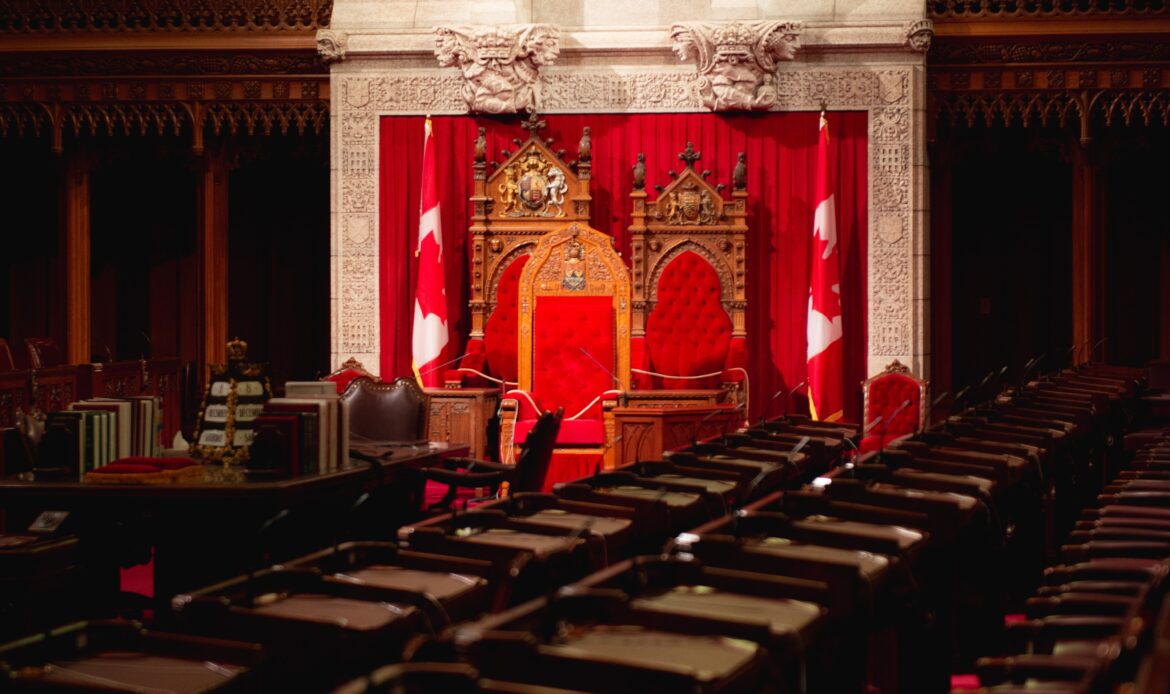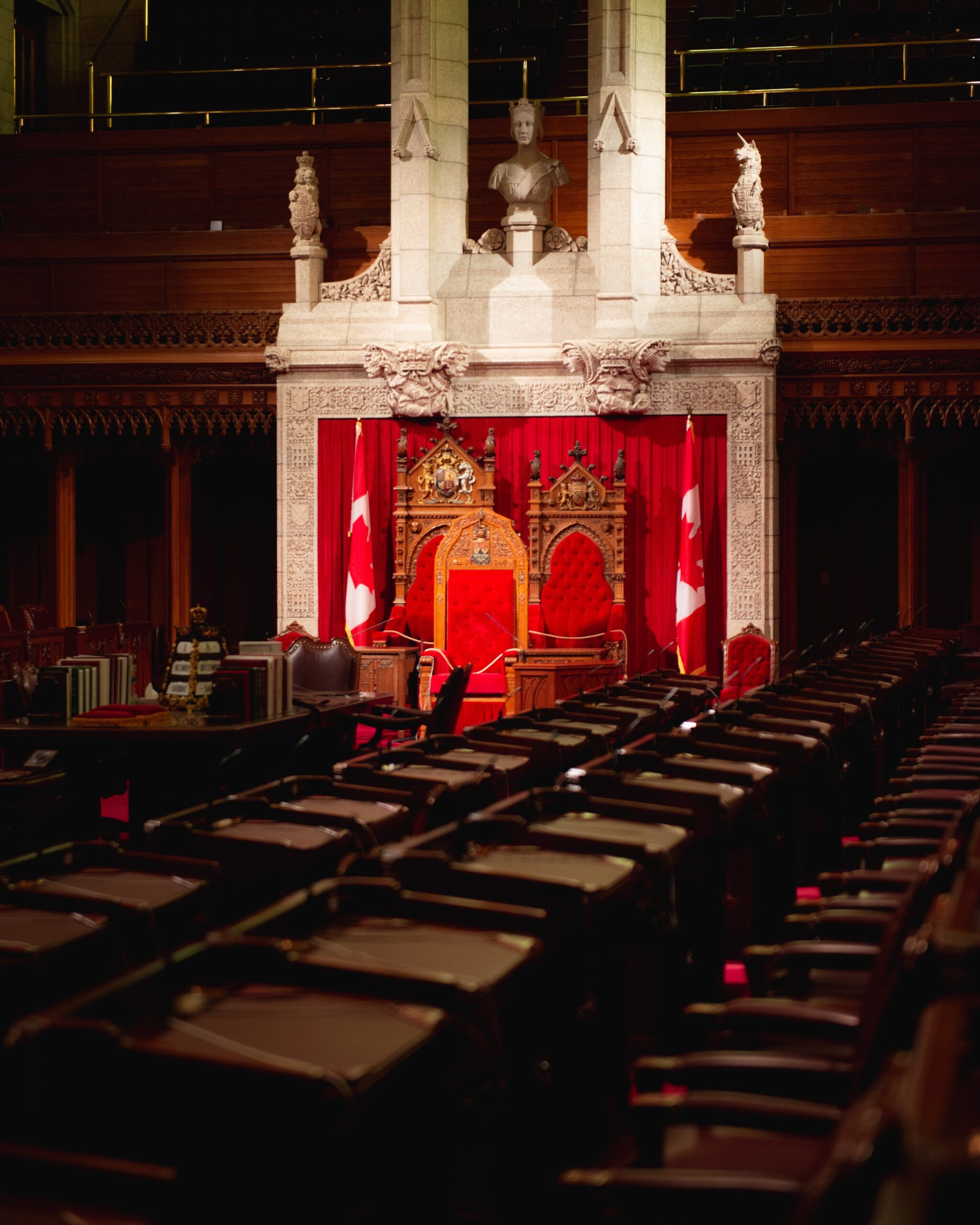Our Monarchy: Worth Keeping Because It Works
“All work published in the Innis Herald, on the Innis Herald website, or on the Innis Herald podcast is representative of the author or creator only. The work does not reflect the values and beliefs of the masthead or Innis College. The Innis Herald is committed to demonstrating the student’s voice and facilitating the exchange of ideas in a respectful, equitable, and inclusive environment.”

I’m a monarchist. But you may not share my opinion. In a September Ipsos poll after Queen Elizabeth II’s passing, 54% of Canadians indicated that it was time to cut ties with the monarchy. In light of this reality, I promise not to bore you by explaining that removing the Crown from Canada is practically impossible. The practicality or impracticality of switching government systems should have no real bearing on the argument that the monarchy is an essential part of the Canadian government.
The first, most important, and maybe only thing Canadians should understand about our constitutional monarchy is that it works. Really, really well. Every parliamentary system requires a moderator, in whom the powers of the executive are vested and who can, when there are questions of a government’s constitutionality or legitimacy, decide whether or not a minority or coalition government has the confidence of the people and the ability to govern. Monarchs are usually the most effective, as their lack of democratic legitimacy enables them to undertake decisions only with extensive consultation and the utmost care for avoiding allegations of political interference.
Don’t believe me? In 2008, when Conservative Prime Minister Stephen Harper faced the threat of being replaced with a left-leaning coalition just six weeks after assuming office, he asked Governor General Michaëlle Jean to prorogue Parliament so that he could avoid being thrown out. Jean agreed, as was precedent, but conditionally. After extensive consultation with Canadian political scientists, she required that Harper bring Parliament back as quickly as possible, and with a budget that would satisfy the coalition. She prevented the PM from simply exercising his powers to get his way, despite opposition. Had Jean been elected, her decision likely would have been a simple yes or no, depending on whether or not she was elected by the Tories or the left-wing coalition. And even if she didn’t allow her political base to sway her decision, it’s more than likely Canadians would have thought that she did. The events of the past few years should tell us all how dangerous it can be to have our trust in democracy eroded.
Our unique constitutional monarchy also offers unique benefits. You may not like that our King resides in England — I personally see the value in sharing a monarch with our closest allies — but you can probably appreciate that we get the best of both worlds. Our Governors General are usually appointed by a non-partisan commission based on merit, and ultimately accountable not to the bureaucrats (or Prime Ministers) who recommend them but to a monarch with no real incentives to meddle in domestic affairs. This arrangement also limits Crown-related expenses: the lack of a monarch on our soil means that we spend far less than the British do accommodating our royal representatives. And at the provincial level, Lieutenant-Governors can act as the Senate does federally, with the legitimacy that only an arms-length representative of an arms-length Crown can have to review the constitutionality of proposed legislation.
The only significant knock against our specific monarchy is its colonial history. The British Crown oversaw some of the most despicable evils ever committed, both here in Canada and across the British Empire, and individual monarchs rarely risked the backlash that came with what was considered “political meddling,” intervening at their peril: one of the motivating factors of the American Revolution was the 1763 decree by King George III prohibiting further colonization without the approval and supervision of the British government, a mechanism that protected Indigenous men, women, and children from unmitigated violence by unsupervised American settlers. But as politicians have changed, so too have monarchs. King Charles III has given every indication in his words and deeds that he’ll be a booster of real sovereignty for colonized nations, even at the expense of his own authority.
If Indigenous Canadians were calling for a different system of Canadian governance, I would be inclined to listen, and I hope you would be too. But they aren’t. Although many Indigenous leaders have described their relationship with the Crown as complex, few have called for its abolition, citing one of the fundamental principles of the nation-to-nation relationship promised in the treaties we signed: a respect for each other’s governance systems. If only the Canadian government could be so gracious.
Our monarchy is worth upholding as an institution, no matter who is sitting on the throne or how hard it is to remove them, because it works. Our parliamentary system requires a neutral monitor, and we enjoy an affordable, fair, and honest one in the Crown we have today. There is no better alternative around the corner. This is why I’m a monarchist, and why you should be too.
